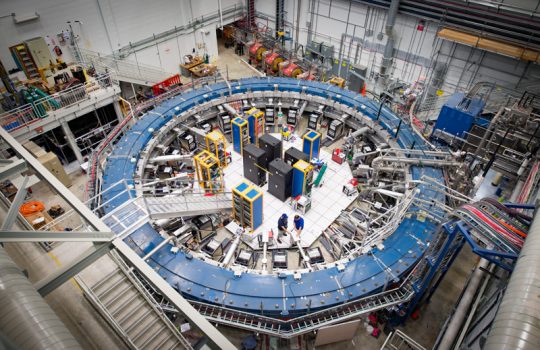A final moment for the muon
Early Morning Coffee at CERN, Nov. 15, 2025
Fermilab’s Muon g-2 collaboration has given its final word on the magnetic moment of the muon. Though the experimental measurement will likely now remain stable for several years, theorists expect to make rapid progress to reduce uncertainties and resolve tensions underlying the SM value.

